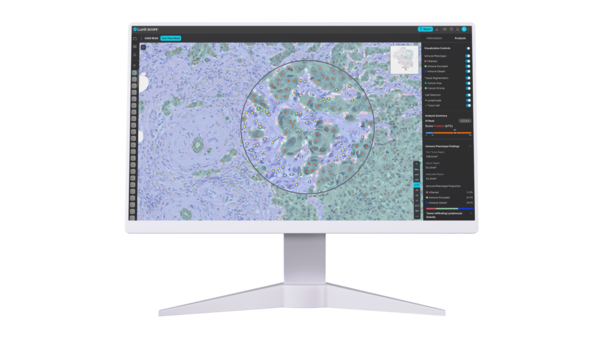Medical AI company Lunit said Monday that a research paper that predicted immunotherapy's effectiveness using Lunit SCOPE IO, an AI biomarker platform, has been published in the Journal for Immunotherapy of Cancer (JITC), the official journal of the Society for Immunotherapy of Cancer (SITC).

Founded in 1984, SITC is a global society of more than 4,600 clinicians, scientists, and researchers from 63 countries specializing in cancer research and treatment worldwide. It is recognized as a worldwide authority in the immunotherapy field and an important platform for sharing the latest research findings and innovative therapies.
Lunit's study was conducted in collaboration with researchers from five hospitals in Korea and the United States, analyzing the response to immunotherapy in 1,806 patients with 27 cancers.
First, researchers precisely categorized the immune phenotype of the patients using Lunit SCOPE IO. Immune phenotypes are broadly categorized as "inflamed," "immune-excluded," or "immune-desert," with immune-active patients typically responding most positively to immunotherapy.
As a result, immune-active patients showed higher objective response rate (ORR) than non-immune-active patients (26.3 percent vs. 15.8 percent), improved progression-free survival (PFS) of 5.3 months vs. 3.1 months, and overall survival (OS) of 25.3 months vs. 13.6 months on immunotherapy.
To further evaluate the predictive value of the treatment, they also performed several subgroup analyses, considering treatment modalities, such as immuno-oncology monotherapy, PD-L1 expression rate (TPS), and tissue collection site. The results showed that the immune activity phenotype classified by Lunit SCOPE IO was a useful predictor of PFS in most subgroups.
Lunit said the study again demonstrated that predicting immunotherapy response using AI biomarkers is clinically relevant.
In particular, Lunit Scope IO is expected to help predict whether the mechanism of action of an immuno-oncology drug is a logical fit for a patient with a specific tumor microenvironment, which will significantly contribute to improving the success rate of clinical trials during the development of anti-cancer drugs, it added.
"As immunotherapies do not work equally well in all patients, there is a growing need for biomarkers that can identify patients who can achieve good results," Lunit CEO Beomseok Brandon Suh said. "We expect that the results of this study will contribute positively to the design and execution of immuno-oncology clinical trials, and ultimately, AI biomarkers can dramatically improve the efficiency of cancer treatment."
Related articles
- Lunit's shares rebounding after record-breaking 2023 sales announcement
- Lunit secures 1st US sale of FDA-approved breast cancer detection solution
- Lunit's AI-based lung nodule detection outperforms competitors
- Lunit inks $1.86 million deal with Samsung to supply AI solutions for chest X-ray reading
- GC Cell, Lunit partner for CAR-NK cell therapy development with AI
- Lunit to acquire Volpara Health for $193 million to expand AI cancer screening in US
- Korean medical device makers shine at Europe's largest radiology conference
- Lunit to supply AI solutions to medical institutions in Taiwan, Singapore
- Lunit gets initial approval for Volpara Health Technologies acquisition in New Zealand
- Lunit expands presence in Europe with 2 new supply agreements
- Lunit to present 7 studies on Lunit Scope at AACR 2024

